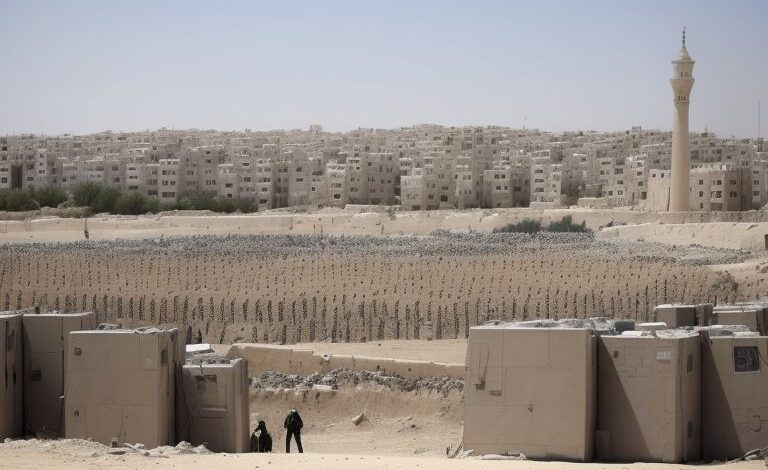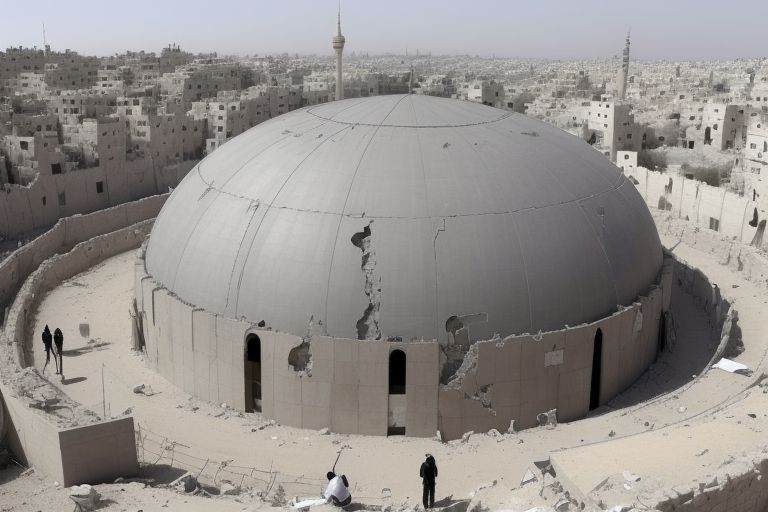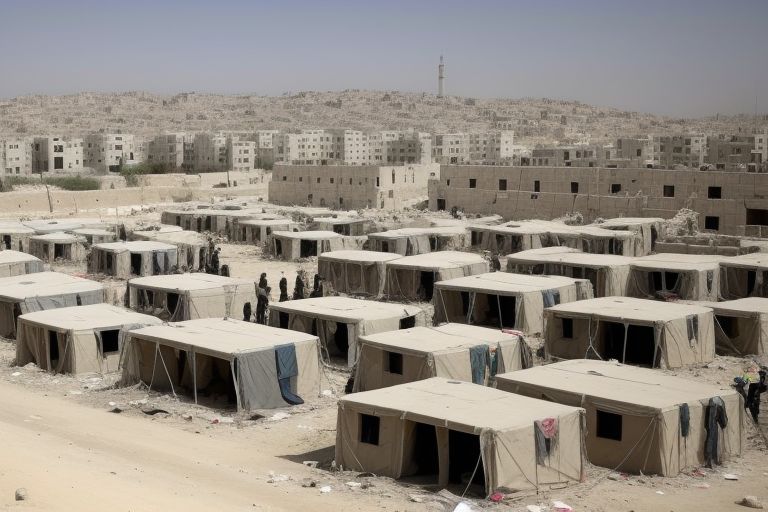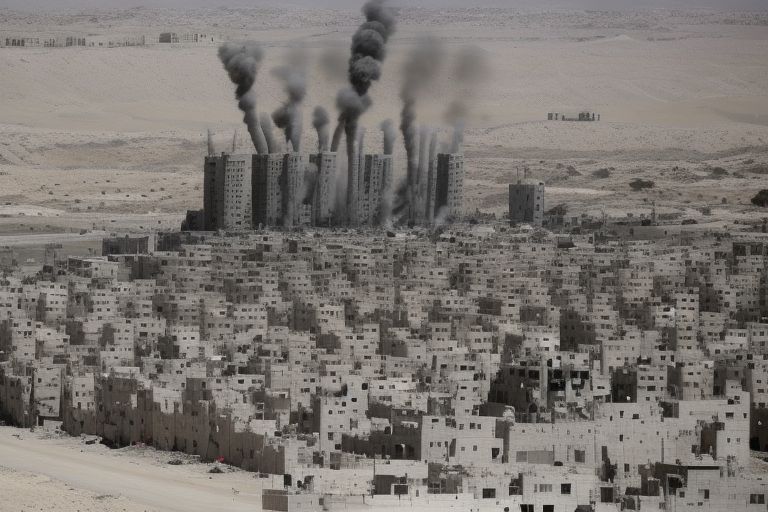Trump Gaza: A Controversial Proposal to Reshape the Middle East

In recent months, former U.S. President Donald Trump has introduced a bold and controversial plan for the Gaza Strip. Known as the “Trump Gaza” proposal, it suggests that the United States should take control of Gaza, relocate its residents, and transform the area into a prosperous region. This idea has sparked intense debates worldwide, with supporters arguing it could bring stability and development, while critics view it as a violation of international law and Palestinian rights. Understanding the implications of this proposal is crucial for anyone interested in Middle Eastern politics and international relations.
The “Trump Gaza” plan has been met with widespread criticism from various quarters. Human rights organizations, including Amnesty International, have condemned the proposal, labeling it as unlawful and a potential war crime. They argue that forcibly relocating millions of Palestinians would constitute a grave violation of international law. Furthermore, experts warn that such actions could lead to a new era of colonial conquest, undermining global peace and security. Despite these concerns, the proposal continues to be a topic of discussion, highlighting the complex dynamics of international diplomacy and human rights.
Understanding the Trump Gaza Proposal: What It Means for the Region

The Trump Gaza proposal is an idea shared by former U.S. President Donald Trump that talks about changing how things work in Gaza. He suggests that the U.S. should take control of the area and move the people living there to other places. This idea is very new and has caused a lot of people to talk. Some believe it might help fix problems in Gaza, while others think it will only make things worse. It could change the way people live and who controls the land. This plan could have a big effect on peace in the Middle East. Many experts believe it’s important to understand this plan clearly and how it might shape the future of the region.
International Reactions to Trump’s Gaza Plan: A Global Perspective
Many countries around the world have spoken out about Trump’s Gaza plan. Leaders from different nations have shown concern, saying the idea is risky and could cause more problems. Some think it goes against human rights, while others feel it is an attempt to control another land unfairly. The United Nations and groups like Amnesty International are not happy with the plan either. They believe the plan could hurt peace talks and make life harder for Palestinians. On the other hand, a few countries close to the U.S. support the plan and say it brings a new approach. But overall, most of the global response is negative, showing how serious the issue is and how it could affect world peace.
Legal Implications of the Trump Gaza Proposal: An Analysis
The Trump Gaza plan is not just a political idea—it has big legal issues too. Experts in law say moving people from Gaza by force could be against international rules. This kind of action is called forced displacement, and it’s not allowed by many international laws. Groups like the International Criminal Court might even get involved if the plan moves forward. People are also worried about the rights of Palestinians living in Gaza. They have lived there for many years and may not want to leave. If the plan goes ahead, it could cause big legal battles. Laws exist to protect people and their homes, and this plan may break some of those laws, which is why it’s getting a lot of legal attention.
The Human Cost of the Trump Gaza Plan: Voices from the Ground

Behind all the politics and laws are real people—families, children, and communities. The Trump Gaza plan could affect millions of lives. Imagine being told to leave your home, your neighborhood, your school, and everything you know. That’s what many Palestinians fear. Some have already spoken out, saying they are scared and don’t want to be moved. They want peace, but not like this. Human rights groups are also sharing stories of how people might suffer. Some families are already struggling with food and safety, and this plan could make life harder. When we talk about the Trump Gaza idea, we must remember the human side—the people who will live through these changes. Their voices must be heard too.
Comparing Trump’s Gaza Proposal with Previous Middle East Peace Plans
Over the years, many peace plans have been suggested for the Middle East, especially for Palestine and Israel. Trump’s Gaza proposal is very different from older plans. Most past peace talks tried to bring both sides together to agree on something. This new plan, however, seems to focus more on power and control than on real peace talks. Past efforts like the Oslo Accords or the Camp David talks involved both Israeli and Palestinian leaders. But this new idea mostly comes from one side. This makes people question if it’s really about peace or just control. By comparing this plan to older ones, we can see how different it is—and maybe why it’s not gaining much support around the world.
Economic Opportunities and Challenges in Trump’s Vision for Gaza
Trump’s plan also talks about making Gaza rich and full of jobs. He says if the area is rebuilt and managed differently, it could become a great place for business and growth. That sounds good, but many people wonder if it’s realistic. Right now, Gaza faces big problems like blockades, poor infrastructure, and high unemployment. Fixing all that would take time, money, and cooperation. It’s not easy to build a strong economy when people don’t have basic rights or feel unsafe. Some experts say economic promises can’t come before justice. If the people of Gaza don’t have freedom, money alone won’t help. So while Trump’s plan talks about jobs and buildings, it misses some of the deeper issues that need solving first.
The Role of the United States in Middle Eastern Affairs: A Historical Overview
The U.S. has played a big role in the Middle East for many years. From wars to peace deals, America has often been in the middle of big decisions. Some people see the U.S. as a peace helper, while others see it as a country that only helps certain sides. In the past, American leaders have tried to stop fights and bring peace to Israel and Palestine. Sometimes it worked, but often it did not. The Trump Gaza plan is another example of America trying to shape the region. But this time, many feel it’s more about control than helping both sides. Knowing this history helps us understand why people are reacting strongly to this new plan.
Public Opinion on Trump’s Gaza Plan: What Do Americans Think
Not all Americans agree with Trump’s Gaza plan. In fact, many people in the U.S. are just learning about it now. Some think it’s a bold move that could help, while others believe it’s wrong and unfair. Polls and online posts show that opinions are mixed, but many Americans are worried about how it could affect the U.S.’s image in the world. Younger people, especially, are more likely to support peace and fairness, and they question why the U.S. should get involved in such a strong way. Some feel the money spent on this plan should go to American problems instead. This shows that even in Trump’s home country, the plan is not supported by everyone and is creating debate.
The Future of Palestinian Statehood Amidst the Trump Gaza Proposal
One big worry with the Trump Gaza plan is what it means for the idea of a Palestinian state. For many years, people have hoped that Palestine could become a country of its own, with its own government and peace. But this new plan might make that harder. If the people of Gaza are moved or if their land is taken, it could hurt the dream of having a real Palestinian state. Some leaders say this plan is trying to erase that dream completely. Others think it’s a way to delay talks about statehood forever. If the world truly wants peace, many believe a fair and free Palestine must be part of the future. This plan may take that chance away.
Lessons from History: Can Trump’s Gaza Plan Avoid Past Mistakes

History shows us many plans in the Middle East have failed. From wars to peace talks, lots of ideas sounded good but didn’t work. That’s why people are asking if Trump’s Gaza proposal will avoid old mistakes. In the past, ignoring the voices of local people has always led to trouble. Plans that don’t respect culture, history, or rights usually don’t bring peace. The Trump Gaza idea seems to be repeating some of those mistakes by pushing one-sided solutions. Experts say for a plan to work, it must include everyone—especially the people who live there. If this new plan doesn’t listen or include local voices, history may repeat itself again, and real peace will stay far away.
Conclusion
The Trump Gaza plan is a big and tricky topic. Many people think it can change the Middle East, but not in a good way. It talks about moving people and changing who controls the land. This makes a lot of people upset and scared. When we talk about peace, we need to think about people’s lives and their homes.
Lots of countries and people don’t agree with this plan. They want real peace that helps both sides, not just one. We should always listen to the people who live there and care about their future. Big plans like this must be fair and kind, not just powerful. That’s the only way we can hope for true peace.
FAQs
Q: What is the Trump Gaza plan?
A: It’s an idea by Donald Trump to change who controls Gaza and move people out of it.
Q: Why are people upset about the plan?
A: Because it could hurt families and break international laws.
Q: Does the plan help Palestinians?
A: Many people say no, because it doesn’t ask what they want or protect their rights.
Q: What do human rights groups say?
A: They say the plan is unfair and could be illegal.
Q: Will this plan bring peace?
A: Most experts think it will not, because it doesn’t include both sides fairly.



